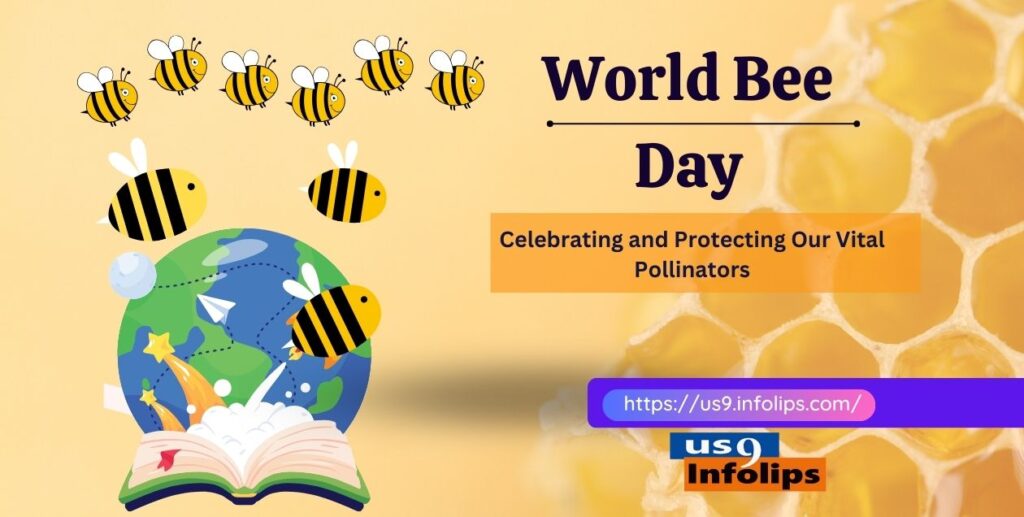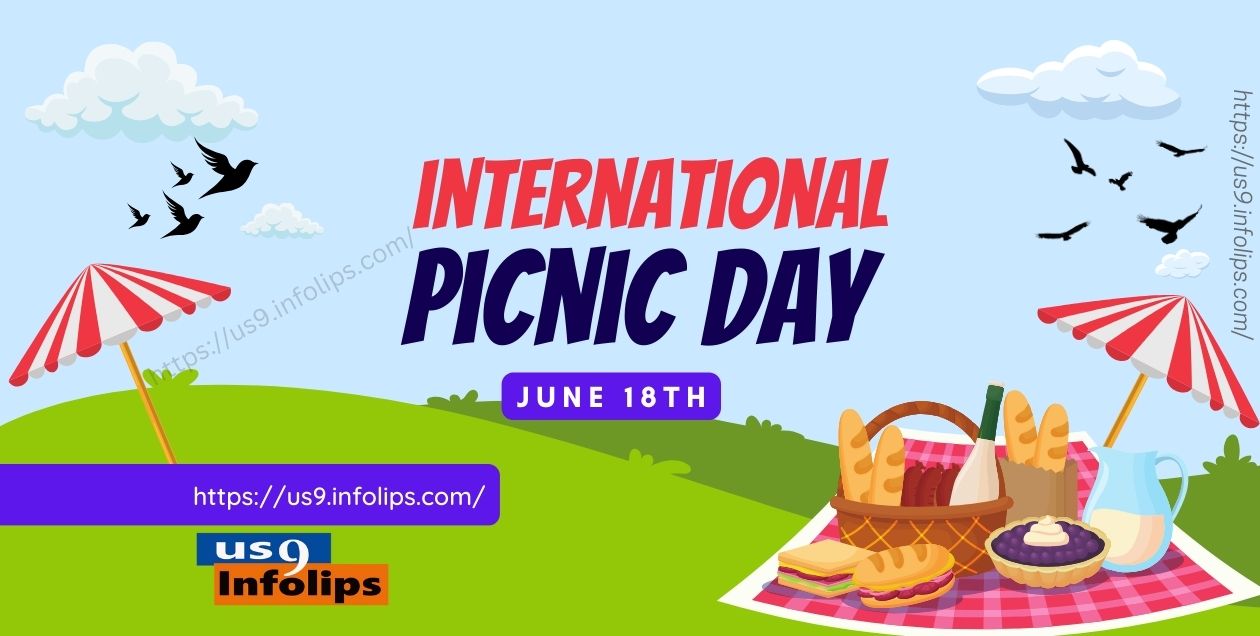World Bee Day: Celebrating and Protecting Our Vital Pollinators
World Bee Day: Celebrating and Protecting Our Vital Pollinators
Celebrating World Bee Day:
Celebrating World Bee Day: A Global Initiative for Pollinator Protection
Every year on May 20th, World Bee Day is celebrated globally to raise awareness about the crucial role bees and other pollinators play in our ecosystem. This day is a vital opportunity to recognize the importance of bees, educate the public on the threats they face, and promote actions to protect these essential insects. But what is the history behind this special day, and how did it come to be?
Table of Contents
The History of World Bee Day
The origins of World Bee Day date back to the efforts of the Slovenian Beekeepers’ Association. Slovenia, a country with a rich beekeeping tradition, proposed the idea to the United Nations in 2014. The initiative was strongly supported by the Slovenian government, recognizing the critical contributions bees make to food security, biodiversity, and environmental health.
The chosen date, May 20th, is significant because it marks the birthday of Anton Janša (1734-1773), a pioneer of modern beekeeping from Slovenia. Janša was a renowned apiculturist whose teachings and techniques have had a lasting impact on beekeeping practices worldwide. His work emphasized the importance of bees and their meticulous care, laying a foundation for sustainable beekeeping.
On December 20, 2017, the United Nations General Assembly adopted a resolution declaring May 20th as World Bee Day. The proposal was supported by a broad coalition of countries, reflecting global recognition of the urgent need to address the challenges facing bee populations.
Global Participation and Activities
World Bee Day is observed by numerous countries around the world, encompassing a wide range of activities aimed at promoting bee conservation. Governments, non-governmental organizations, educational institutions, and individuals participate in various events and initiatives.
Countries like Slovenia, Australia, Canada, the United States, and many others have embraced World Bee Day with enthusiasm. Events include educational workshops, beekeeping demonstrations, exhibitions, and planting bee-friendly flowers. In many places, schools organize activities to teach children about bees’ importance, fostering a new generation of environmentally conscious individuals.
International organizations such as the Food and Agriculture Organization (FAO) of the United Nations play a pivotal role in coordinating global efforts. The FAO uses this day to highlight the importance of pollinators in achieving the Sustainable Development Goals (SDGs), particularly those related to hunger, health, and the environment.
The Importance of Bees and Pollinators:
Bees are indispensable to agriculture and biodiversity. They are primary pollinators for about 75% of the world’s leading food crops, contributing to one-third of the food we consume. This pollination service is essential for the production of fruits, vegetables, nuts, and seeds, directly affecting human nutrition and food security.
Moreover, bees contribute to the health of ecosystems. They help in the reproduction of flowering plants, which in turn supports wildlife habitats and biodiversity. Without bees, the delicate balance of ecosystems would be disrupted, leading to significant environmental consequences.
Challenges Facing Bees:
Despite their importance, bee populations are declining at alarming rates due to various factors. Habitat loss, pesticide use, climate change, and diseases are major threats to bees. Intensive agricultural practices reduce the availability of flowers that bees rely on for food. Pesticides, especially neonicotinoids, can be toxic to bees, affecting their ability to forage and reproduce.
Climate change alters the availability of floral resources and disrupts the synchrony between bees and plants. Additionally, parasites like the Varroa mite and diseases such as colony collapse disorder (CCD) have devastating impacts on bee colonies.
Actions to Protect Bees:
World Bee Day serves as a call to action to address these challenges. Individuals can contribute by planting bee-friendly gardens, reducing pesticide use, and supporting local beekeepers. Policymakers are urged to implement regulations that protect pollinator habitats and promote sustainable agricultural practices.
Educational campaigns are crucial in raising awareness and encouraging community involvement. Supporting research on bee health and developing innovative solutions to protect pollinators are also vital steps.
Well-Known Facts About World Bee Day
- Established by the United Nations:
World Bee Day was officially designated by the United Nations General Assembly on December 20, 2017. The day aims to raise awareness of the importance of bees and other pollinators. - Date Significance:
The date, May 20th, was chosen to honor the birthday of Anton Janša, a pioneer of modern beekeeping from Slovenia, born in 1734. Janša’s work laid the foundation for contemporary beekeeping practices. - Slovenian Initiative:
The idea for World Bee Day originated from Slovenia. The Slovenian Beekeepers’ Association, with strong support from the Slovenian government, spearheaded the campaign to establish the day. - Global Participation:
Countries around the world, including the United States, Canada, Australia, and many European nations, actively participate in World Bee Day through various events and initiatives aimed at promoting bee conservation. - Focus on Pollinator Protection:
World Bee Day emphasizes the critical role of bees and other pollinators in sustaining ecosystems and agriculture. Pollinators are essential for the reproduction of many plants, including crops that provide the majority of the world’s food. - Educational Activities:
Educational workshops, school activities, and community events are commonly organized on World Bee Day to teach people about the importance of bees, the threats they face, and how to protect them. - Environmental Advocacy:
The day is a platform for advocating for sustainable agricultural practices, the reduction of pesticide use, and the preservation of natural habitats to ensure the health and survival of bee populations. - Support from International Organizations:
The Food and Agriculture Organization (FAO) of the United Nations is actively involved in promoting World Bee Day. The FAO highlights the role of pollinators in achieving the Sustainable Development Goals (SDGs), particularly those related to zero hunger and environmental sustainability. - Raising Awareness of Bee Decline:
World Bee Day brings attention to the alarming decline in bee populations globally, caused by factors such as habitat loss, climate change, pesticide use, and diseases. It encourages actions to mitigate these threats and promote bee-friendly practices.
Unknown and Interesting Facts About World Bee Day
- Anton Janša’s Legacy:
Anton Janša, whose birthday is commemorated by World Bee Day, was not only a pioneer in beekeeping but also an artist. He painted numerous scenes of rural life and bees, which helped popularize beekeeping in his time. - First Celebration:
The first World Bee Day was celebrated on May 20, 2018. The inaugural event included a global beekeeping conference held in Žirovnica, Slovenia, Janša’s birthplace. - International Bee Research Association:
World Bee Day has fostered greater collaboration among international bee research organizations, leading to significant advancements in understanding bee behavior and health. - Beehive Tours:
Many countries celebrate World Bee Day by organizing tours of apiaries, where the public can see beekeeping in action and learn about the life cycle and work of bees up close. - Celebrity Involvement:
Some celebrities and influential figures have joined in promoting World Bee Day. For example, actor Morgan Freeman, who has converted his Mississippi ranch into a bee sanctuary, often highlights the importance of bees and supports World Bee Day initiatives. - Urban Beekeeping:
The rise of urban beekeeping has been one of the positive outcomes associated with World Bee Day. Cities like London, New York, and Paris have seen an increase in rooftop and community garden beehives, helping to support urban biodiversity. - Art and Culture:
World Bee Day has inspired various art projects and cultural events. In some cities, artists create bee-themed murals, sculptures, and installations to celebrate the day and raise awareness about bee conservation. - Educational Resources:
On World Bee Day, many educational institutions release special resources and curricula focused on bees and pollinators. These resources include interactive online modules, documentaries, and educational games for children. - Bee-Friendly Awards:
Some countries have introduced awards and recognitions on World Bee Day to honor individuals, organizations, and communities that have made significant contributions to bee conservation and sustainable beekeeping practices.
9 Controversies About World Bee Day
- Commercial Exploitation:
Some critics argue that World Bee Day has been co-opted by commercial interests. Companies, especially those in the agriculture and food sectors, sometimes use the day for marketing purposes rather than focusing on meaningful conservation efforts. - Pesticide Industry Involvement:
There is controversy over the involvement of companies that produce pesticides known to harm bees. These companies often participate in World Bee Day activities, which some see as hypocritical and a form of “greenwashing.” - Beekeeping vs. Wild Bees:
The emphasis on beekeeping during World Bee Day has been criticized for overshadowing the importance of wild bees and other pollinators. While managed honey bees are crucial, wild pollinators also play a vital role in ecosystems and face unique threats. - Sustainability of Beekeeping Practices:
Not all beekeeping practices are sustainable. Some methods can be harmful to bee health and biodiversity. Critics argue that World Bee Day should do more to promote sustainable and ethical beekeeping practices. - Global North vs. Global South:
The global narrative around World Bee Day often highlights issues and solutions relevant to the Global North, potentially neglecting the unique challenges and traditional knowledge systems of the Global South regarding pollinator conservation. - Political Agendas:
Governments and political entities sometimes use World Bee Day to further their own agendas without implementing substantial policies to protect pollinators. This can lead to accusations of tokenism and lack of genuine commitment. - Lack of Action:
Despite increased awareness, there is criticism that World Bee Day has not led to significant policy changes or increased funding for pollinator research and conservation. The day is seen by some as more symbolic than actionable. - Climate Change Focus:
While climate change is a significant threat to bees, some argue that World Bee Day does not adequately address this issue or promote the drastic changes needed to combat climate change and protect bee populations in the long term. - Local vs. Global Solutions:
The one-size-fits-all approach to bee conservation promoted during World Bee Day can be controversial. Effective conservation strategies often need to be tailored to local ecosystems and conditions, which may not be adequately addressed by global campaigns.
Conclusion:
World Bee Day is more than a celebration; it is a movement to safeguard the future of bees and our planet. By understanding the history and importance of this day, recognizing the threats bees face, and taking proactive steps to protect them, we can ensure that these invaluable pollinators continue to thrive.
Through global cooperation and local actions, we can create a world where bees are cherished and protected for generations to come.
FAQs About World Bee Day
Q.1) What is World Bee Day?
Answer: World Bee Day is an international observance on May 20th to raise awareness about the importance of bees and other pollinators and the threats they face.
Q.2) Why is World Bee Day celebrated on May 20th?
Answer: May 20th marks the birthday of Anton Janša, a pioneer of modern beekeeping, who was born in 1734 in Slovenia.
Q.3) Who initiated World Bee Day?
Answer: The initiative was started by the Slovenian Beekeepers’ Association and supported by the Slovenian government.
Q.4) When was the first World Bee Day celebrated?
Answer: The first World Bee Day was celebrated on May 20, 2018, following its designation by the United Nations in December 2017.
Q.5) Why are bees important?
Answer: Bees are crucial pollinators for about 75% of the world’s leading food crops, contributing to biodiversity, food security, and ecosystem health.
Q.6) What are the main threats to bees?
Answer: Bees face threats from habitat loss, pesticide use, climate change, diseases, and intensive agricultural practices.
Q.7) What can individuals do to help protect bees?
Answer: Individuals can help by planting bee-friendly flowers, reducing pesticide use, supporting local beekeepers, and advocating for policies that protect pollinator habitats.
Q.8) How do countries participate in World Bee Day?
Answer: Countries participate through educational workshops, beekeeping demonstrations, exhibitions, community events, and media campaigns to promote bee conservation.
Q.9) What are some controversies associated with World Bee Day?
Answer: Controversies include commercial exploitation, pesticide industry involvement, the focus on managed honey bees over wild pollinators, and the lack of substantial policy action to protect bees.
Follow us for more captivating articles and stay connected to explore the world. Let’s embrace the power of communication and understanding.
Disclaimer: The views in this article are given with the help of information available on the net. Readers are encouraged to conduct their own research before making any decisions. The publisher disclaim any liability for any loss or damage caused directly or indirectly.

Related topics:
1. Perfect World Travel Guide
2. 9 Most Popular EV Cars in the USA
3. 9 Best Things About Apple TV 4K – Third Generation
4. Think before You Renew Amazon Prime
5. Jimmy Carter: A Great Legacy
6. Memorial Day: Honoring the Sacrifice, Celebrating Freedom
School Site :
For English grammar and lot more : Smart School Infolips
Marathi Poems: Marathi Rang












